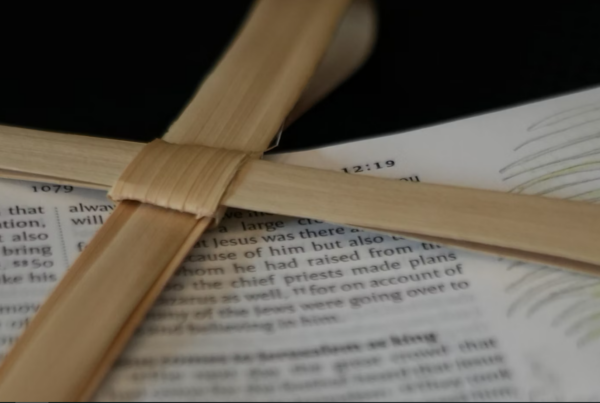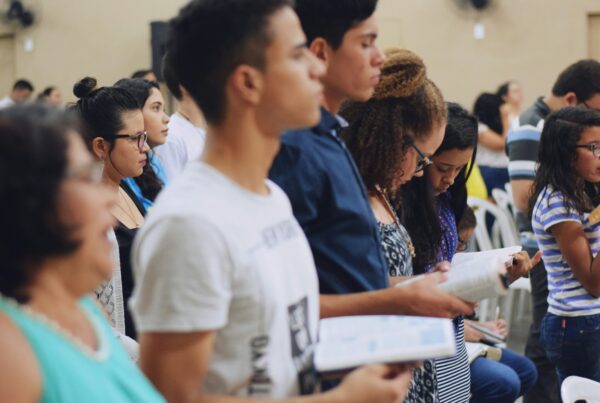O n a hot Saturday last July, the smell of street food drifted across the parking lot of Ross Community Reformed Church. People milled around, eating hot dogs and admiring classic cars. Kids, giddy from having their faces painted, scrambled into the bounce house. A small crowd gathered around a band playing live music.
Summer Fest, put on by Ross Church, just outside the city limits of Gary, Indiana, drew more than 200 community members from the surrounding area. And that’s compared to the size of the congregation itself, which is about 110. Nearly half of the congregation volunteered at the event in some way, whether helping kids make sand art, running the free raffle, popping popcorn and scooping snow cones, or, later, sending handwritten notes to each guest who entered the raffle.
This kind of event marks a larger shift in the way Ross Church has been engaging its community.
If you had visited Ross Church two years ago, you would definitely have been welcomed. But, says pastor Shawn Gerbers, by your fourth Sunday as a visitor, that friendliness would have worn off. People would expect you to have integrated yourself. Today, if you show up at Ross Church on a Sunday morning, you’ll likely be greeted enthusiastically and invited to join someone for coffee in the church’s café after the service. If you find yourself there again multiple weeks in a row, the welcome will be the same. Now Ross Church is really intentional about embracing newcomers.
How did Ross Church become a place so committed to visitors? And, more than that, how did it go from, in Gerbers’s words, a place with “a sense of unease and directionlessness” to a place of “hope, opportunity, and God working”?
It started around the time Gerbers got back from a sabbatical in August 2018. The consistory invited a consultant, Daryl Cripe, to facilitate a discernment process with them. Cripe encouraged them to think differently about some of the ministry areas they took for granted. The consistory identified several focus areas, but started by tackling just two: welcoming visitors and engaging with the community. A team was assigned to each.
The First Impressions Team has helped Ross Church develop a culture of welcome. One of the ways they’ve done that is through remodeling an unused chapel space in the church building into a café. They added several small tables, each one just the right size for easy conversation. And with some effort, members of the congregation have grown remarkably comfortable inviting visitors to the café for a cup of coffee or a cookie after the service. A number of people have stuck around and even become deeply involved in the church, and Gerbers credits the growing culture of intentional friendliness.
Team Tomorrow focused on a new approach to outreach. “It’s not about getting people to come to church on Sunday morning,” says Gerbers. “We have to establish relationships because we’re genuinely interested in and care about our community.” So the team began planning events with the goal to connect with the neighborhood. One of those events was Summer Fest.
“I’m looking forward to how we can build on [Summer Fest],” says Keith Best, an elder who was part of planning Summer Fest. “In the past, we felt we were in the community but not a part of it. Now we’re a part of the community, which is a good thing.”
As a third-generation member of Ross Church, Best admits that he was wary of Cripe and the discernment process at the beginning. But he quickly learned to appreciate how Cripe helped the consistory to think differently about outreach. It’s no longer just the leadership that has a new vision; now the whole congregation is in on it.
“There’s a whole spirit in the church where everybody gets it and is on board with trying to move forward,” says Best.
The congregation’s enthusiasm is matched by its wisdom. While planning a trunk-or-treat event for the fall, Team Tomorrow discovered that another church was going to host a similar event just a mile down the road. Rather than press on, Ross Church decided to cancel its event in order not to detract from the other church’s.
“I was really proud of our Team Tomorrow. It took a lot of guts to [cancel],” says Gerbers.
Now the church is dreaming up community events for 2020, as well as potential partnerships. After Summer Fest, the school board expressed wanting to get involved, as did the township office and fire department.
“That’s the fruit that we’re seeing,” says Gerbers, with excitement in his voice. “Have we seen people come to church? Maybe a couple—but that’s not the goal. Ultimately, we want to share the love of Jesus with them.”
Gerbers wants to be clear: “We’re a success story, but by no means have we arrived. That’s a good thing, though. We want to keep that hunger. We were directionless, inward focused, selfish. Now we’re committed to reaching the lost for Jesus Christ.”
Grace Claus serves as children's ministry coordinator for a church in the Seattle area, where she lives with her family. She holds an MDiv from Western Theological Seminary in Holland, Michigan.



